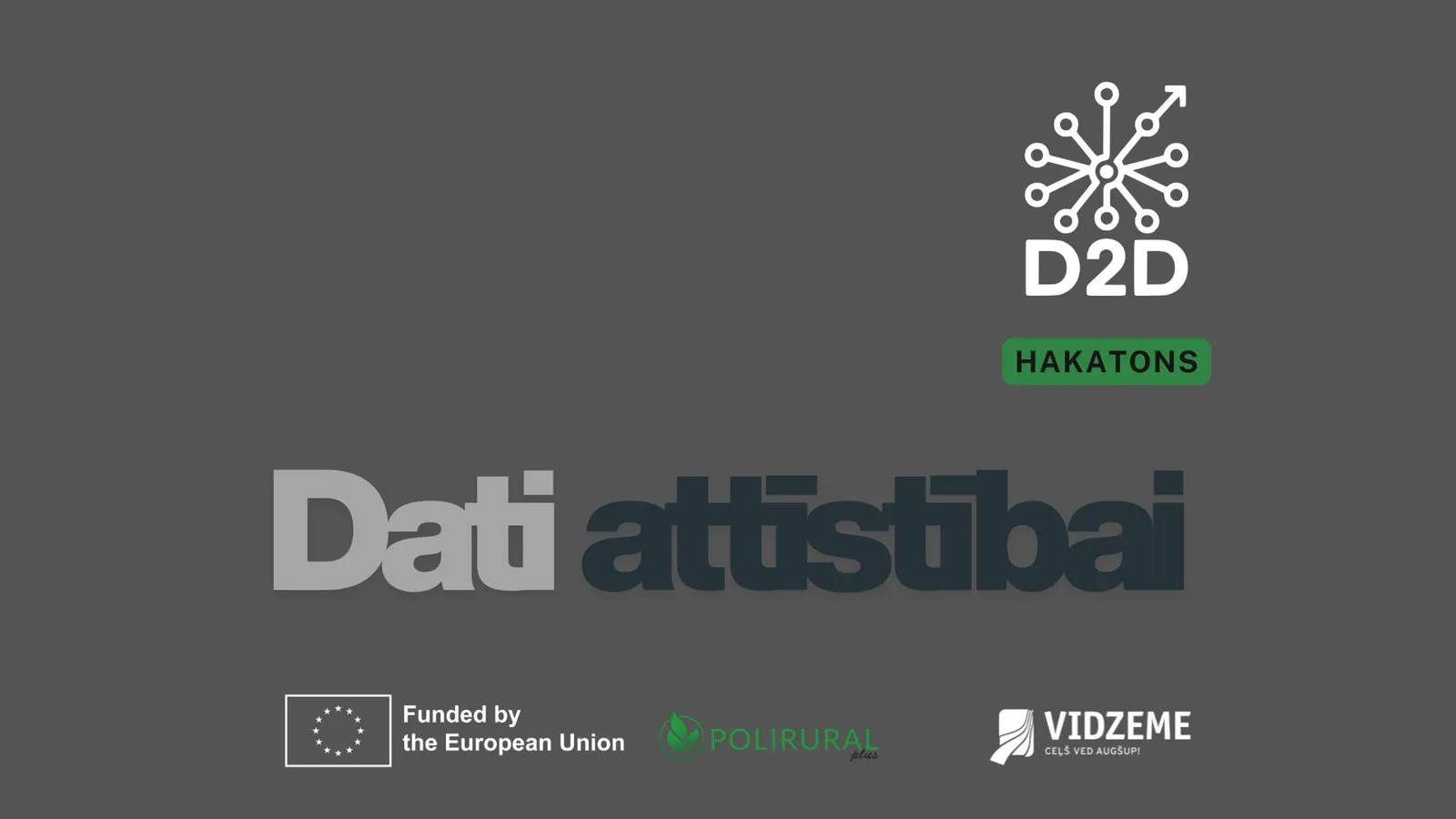The first stage of the Data for Development (D2D) hackathon took place online, bringing together a wide group of stakeholders from across Vidzeme and beyond. Organized within the framework of the PoliRural Plus program, the event was hosted by NovoFutura in close cooperation with the Vidzeme Planning Region. More than 50 participants joined the hackathon, which aims to design a prototype for a unified and effective system for monitoring and evaluating development, focusing on indicators that are comparable and useful for local and regional planning. The online stage introduced the participants to the objectives, working methods, and first tasks, setting the foundation for practical collaboration.
Participants were divided into six thematic teams, each addressing a sector-specific set of indicators. Shared online worksheets were used to evaluate and compare indicators through the “traffic light” method. Discussions emphasized challenges in data availability, comparability, and fragmentation, while also highlighting opportunities for smarter use of existing tools.
In addition to collaborative teamwork, the hackathon was also designed as a learning and capacity-building event, where experts shared their perspectives and provided guidance for further development.The presentations provided important insights. Andris Ločmanis, senior expert from the Strategic Monitoring Department of Riga Municipality, highlighted the need for focusing on fewer but more meaningful indicators, stressing that data must be not only collected but also properly analyzed. Ieva Kalniņa, Head of the Territorial Planning Department at Vidzeme Planning Region, underlined the importance of systematic monitoring and transparency, reminding that data is the “new oil” – valuable only when refined. Aleksandrs Ļubinskis, Deputy Director of Cēsis Digital Center and lecturer on data analytics, digital tools, and AI implementation, shared perspectives from municipal, NGO, and research viewpoints, stressing the importance of process mapping and practical outcomes for all stakeholders. He also showcased PoliRural Plus AI tools and demonstrated the potential of other AI solutions once comparable and structured data become available. Elza Bidere, GIS specialist representing SIA Envirotech, demonstrated practical data visualization and automation tools, showing how digital solutions can make data useful not only for internal reporting but also for communication with citizens.
Teams valued the opportunity to exchange experiences, noting “aha” moments such as City of Riga’s approach to data management and the practical use of advanced Excel solutions. At the same time, participants acknowledged ongoing challenges with data access and consistency. The participants will now continue with a “detective task” within their municipalities, identifying key indicators, mapping data collection processes, and preparing contributions for the second, in-person stage of the hackathon to be held on September 19. The second stage will focus on jointly testing and shaping a prototype of the development monitoring system, ensuring that selected indicators are practical, comparable, and meaningful for municipalities and the region as a whole.
The online event gathered representatives from all 10 municipalities of the Vidzeme Planning Region, one representative of the Ministry of Smart Administration and Regional Development (VARAM), nine Vidzeme Planning Region specialists, two hackathon facilitators and lecturers, one external expert, and one private company with a GIS specialist. In total, the hackathon brought together up to 54 participants simultaneously. The D2D Hackathon has successfully set the stage for building a pioneering system for regional development monitoring in Latvia, and the upcoming in-person session will further advance this work, moving from discussions to hands-on prototyping.




Existing Comments